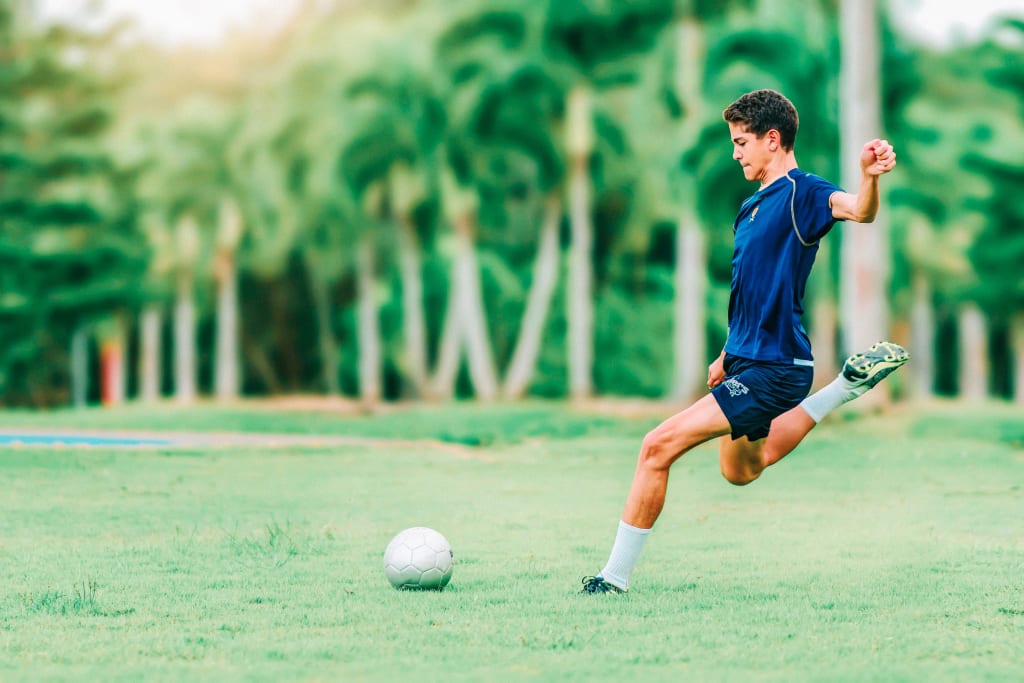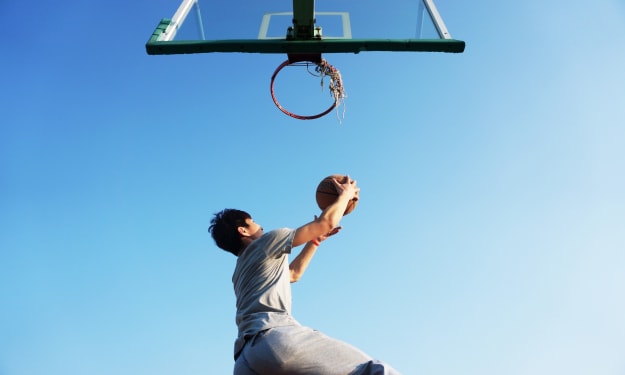Get Back in the Game: Tips for Recovering Quickly from a Sports Injury
Quickest way to get back on the field

One moment you're on top of the world, playing your hardest out on the field. The next, you're laying flat on the grass wondering what just happened while your ankle screams in protest. Almost every athlete has been in this position before, and it's every athletes nightmare; the dreaded sports injury. While it is every athletes worst-case scenario, but most athletes will suffer from a sports injury of some kind. Common sports injuries include things like joint sprains, dislocations, and muscle strains. For some people this might feel as if it's the end of the world, but that just isn't the case these days. There are many things that can be done at home, as well as in the doctor's office, for sprained ankles, broken wrists, and swollen muscles that will help you get back out on the field quickly.
1. Get Medical Help Immediately
Some people may insist that they are fine, or that they can keep playing, but if you feel as if a part of your body is unable to move, you may have a more serious injury than a simple strained muscle. Sports that are high-impact can potentially cause broken bones and sprains, which could lead to further injury of the muscles, or even permanent damage. These injuries are not minor, and will require a medical professional's help to prevent any further harm. In most cases, doctors will have the tips and tricks you need to heal as fast as possible. Seeing a doctor to address the injury will also give them the ability to inform you of the best practices, medicines, and potential procedures to help you heal quickly, getting you back into the game as soon as possible. Some of these suggestions might be as simple as resting and icing the leg, while some doctors may recommend physical rehabilitation or orthopedic surgery to assist the injury in the healing process.
2. Get Friendly with the Bench
I know this sounds terrible to most athletes. When you're on a sports team there's nothing worse than having to sit games out, but rest is the most important factor in recovering from an injury quickly. The more you use the injured body part, the longer it will take to heal. Not only could it take longer to heal, but using an injured part of your body could potentially worsen the state of the injury, making the healing time even longer. Pain is also a factor in injuries, and while you may not want to go out much due to the mild pain, skipping games you were previously going to play in can actually be more harmful than helpful. Your mental state aids in the healing process, and by still going into the game to watch your team play, you're actively participating in the morale of the team, while still experiencing the sport that you love. A positive attitude definitely goes a long way when it comes to recovering from minor or severe injuries. So don't sit at home when you get injured, go support your team members and cheer them on from the sidelines!
3. The RICE Method
This is probably the most commonly used at-home method for quickly healing any sports injury. The RICE method is composed of four things; rest, ice, compression, and elevation. Rest, of course, is the first step in helping your body heal from anything. Be sure to not use the injured body part if at all possible. Relax for a day or two immediately following the injury to be sure the inflammation goes down. Ice, the next step, will assist in reducing inflammation from the injury. Our bodies are wired to use inflammation to help heal muscle and bone injuries by increasing the blood flow in the injured area, but sometimes inflammation can do more harm than good. If the swelling continues for too long, it can cause damage to the surrounding muscles. Doctors recommend you be seen by a medical professional if your swelling persists for more than a week. Combating too much inflammation can help the injury heal faster, and the best way to do that is to ice the injury as much as possible. Compression is the second step in reducing inflammation and swelling. By wrapping the injury, you're preventing the excess blood from piling up in the damaged area. The final step in the RICE method is elevation. If at all possible, elevating the injured area will be helpful in reducing swelling, inflammation, and pain. This can also help with the rest portion of this method, as elevating the problem area will prevent you from accidentally over-using it.
4. Don't Get on the Field Too Early
One of the biggest mistakes athletes make in terms of injuries is underestimating the amount of time it takes to heal. It may be torture not being able to participate in your favorite activity, but your body is more important than anything else. If your injury is almost healed, the best thing to do is to let it finish the healing process before attempting anything on the field. If the injury is not fully repaired, putting strain on it can actually bring you back to square one, or worse, it could permanently damage the body part, preventing you from ever participating in that sport ever again. To be absolutely sure that your injury is fully healed, going to a medical professional is the best way to determine whether you're ready to get back in the game or not. It is possible to tell whether a minor injury is healed enough for rigorous activity without a doctor's help, but even minor injuries can become major if they are not taken care of properly.
5. When in Pain, Use an Anti-Inflammatory
There are some instances where the pain will just be too much. This can happen with both minor or major injuries alike, as swelling, which happens in both cases, is one of the main causes of pain from an injury. If you feel like you need some relief, a pain medication like ibuprofen could do the trick. This handy ant-inflammatory can be found in small doses in any drug store, and is perfectly safe to use without a doctor's permission when following the directions on the box or bottle. Ibuprofen will help in reducing any swelling or inflammation that is causing pain in the injured area. If your doctor feels it is necessary, they may prescribe a higher dosage of an anti-inflammatory. Be sure to only take as much as you need, as ibuprofen can be damaging to the stomach lining and cause ulcers if misused.
6. Try to Prevent Future Injuries
This seems like it would be a no-brainer, but there are ways athletes can prevent injuries in the near or distant future that will keep them from playing their sport. Be sure to wear the proper gear when on the field, meaning it should be the right size and material for the sport you're playing. If the sport is high-impact, you'll want plenty of padding and a helmet to keep from major injuries to the head and other parts of the body. When practicing, always try to do the drills that will best assist you when playing the game. Practicing the incorrect way can lead to injury when out on the field. And, overall, you're going to want to make sure you're feeling your best before you play any type of sport. If you're suffering from a cold, the flu, or any other type of illness, its best to stay off the field until you recover. Being at your best is important in preventing injury, as you will have quicker reaction times, and you're less likely to make mistakes.
Being injured, while it can be scary, isn't the end of the world for anyone. Sometimes injuries allow athletes to take much needed breaks for a short time. But the most important thing to remember about injuries is that they take time to heal. When you are injured, be sure to stick to the routine you've set out for yourself for your healing and rehabilitation to help speed up the process of healing. Catch up on some shows you've been falling behind on, or watch some movies. Go to sports events you might miss out on due to your injury to cheer on your friends and teammates. But, most importantly, take care of yourself and your body. Injuries can quickly become serious if they are not handled with care and proper techniques, so making sure your body is getting the things it needs to heal is the most important step to a quick recovery. We only get one body, so it's important to make sure it heals properly.






Comments
There are no comments for this story
Be the first to respond and start the conversation.